I'm trying to code a multinomial algorithm that will basically apply a binomial distribution to each value of an input vector, knowing the values of all previous ones. It's aimed here to generate a new population for multiple alleles knowing the initial population.
To achieve this, I'm using this recursive algorithm :


This is what my code looks like right now :
void RandomNumbers::multinomial(std::vector<unsigned int>& alleleNumbers) {
/* In this function we need two different records of the size.
* We need the size from the old populations, ( N - n1 - ... - nA )
* and we also need the size from the newly created population,
* ( N - k1 - ... - kA ).
* In order to achieve such a task, we'll use the integer "temp" to store
* the value n1 before modifying it to k1 and so on.
*
*
*/
double totalSize = 0;
for(auto n : alleleNumbers) totalSize+=n;
double newTotalSize(totalSize);
std::cout<< newTotalSize;
for(size_t i = 0; i < alleleNumbers.size(); ++i){
size_t temp = alleleNumbers[i];
alleleNumbers[i] = binomial(newTotalSize,
(alleleNumbers[i])/(totalSize));
newTotalSize-= alleleNumbers[i];
totalSize = temp;
}
}
But I'm not sure at all about this, and I was wondering if there was an already existing multinomial algorithm of that kind...
Thank you very much.